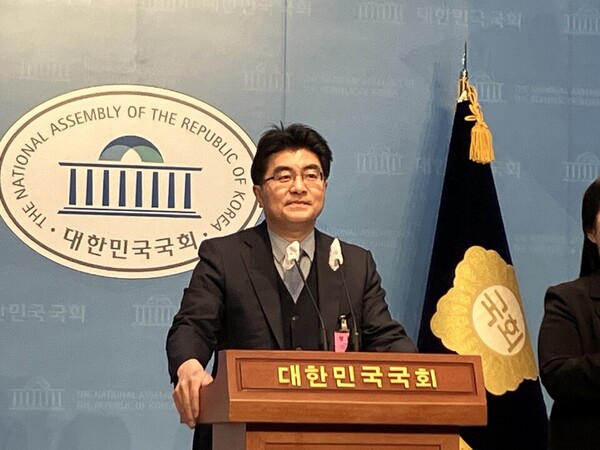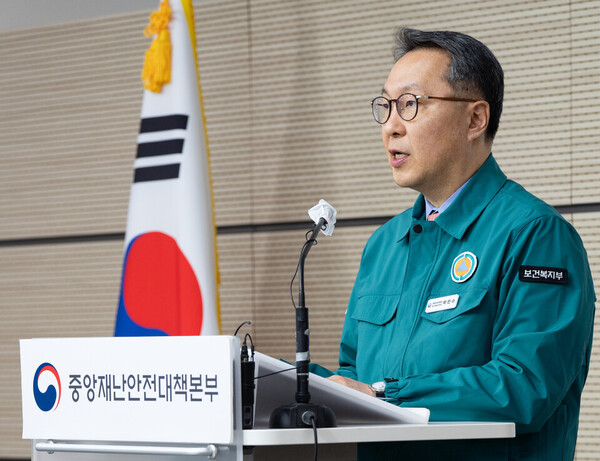Korean medical professors who have announced their resignations, urging dialogue with the government, have issued a stark warning of an impending healthcare crisis in the country. They highlight that hospitals, which have been reducing their services for nearly a month following the departure of trainee doctors, are facing significant financial strain.
Notably, even the so-called "Big Five" hospitals -- Seoul National University Hospital, Severance Hospital, Samsung Medical Center, Asan Medical Center, and the Catholic University of Korea Seoul St. Mary's Hospital -- expressed concerns about the looming threat of bankruptcy, according to a representative of medical school professors at Seoul National University (SNU).

"The decision to resign is not solely due to the professors' fatigue," said Bang Jae-seung, head of the emergency committee of the association of medical school professors at SNU, during an interview with KBS Radio on Wednesday.
He cautioned that unless the current impasse between the government and doctors is resolved, Korea will confront a severe breakdown in its medical system.
Medical professors assert that failure to resolve the situation could precipitate a medical crisis, as trainee doctors' resignations will be legally recognized from March 18. This date marks one month since the mass resignations of trainee doctors began on February 19, under civil law, regardless of whether hospital directors accept resignation letters.
Korean trainee doctors -- interns and residents -- joined walkouts en masse in February to protest the government’s plan to increase medical school student seats by 2,000 from the academic year of 2025.
Earlier, professors at SNU College of Medicine decided to submit their resignations on March 18 if the government fails to present "a reasonable breakthrough" to address the ongoing walkout by trainee doctors.
Bang described the current medical system crisis, occurring without some 12,000 trainee physicians, as "deplorably serious."
According to Bang, medical professors have been unable to conduct regular surgeries for nearly two weeks. They can only perform emergency or semi-emergency procedures due to the shortage of manpower resulting from the absence of trainee doctors.
“Wards and intensive care units remain vacant when we go into surgeries. This situation makes it challenging to promptly attend to patients in urgent need of treatment," he said.
"Without trainee doctors, university hospitals, especially the Big Five hospitals, will go bankrupt one after another," he said.
"In one to two months, you can't go to a big hospital to have cancer surgery or brain surgery. There is no turning back. Korean healthcare is over."
The boycott of classes by medical students further exacerbates the issue. If the situation persists and leads to widespread failing grades, it could disrupt the supply of interns and residents for next year. This would happen if fourth-year students are unable to take the medical licensing exam due to incomplete credits.
‘Government would not give up 2,000 more med students annually’

Park Min-soo, vice minister of the Ministry of Health and Welfare, emphasized the critical nature of the situation at a briefing on Wednesday, highlighting the reliance of tertiary hospitals on professors.
“If professors also resign (after trainee doctors), the current healthcare system would be untenable,” he said.
Acknowledging the precariousness of the situation, Park stated that maintaining the medical system was challenging and that the resignation of professors would exacerbate the difficulties. However, he expressed certainty that medical professors would remain committed to patient care.
Regarding the plan to increase the number of medical school seats by 2,000 annually, Park reiterated the government's unwavering stance on the matter. While open to dialogue on various topics, including seat allocation, he emphasized the government's determination to expand medical education opportunities.
Park emphasized that all issues are open for discussion, including the expansion of medical school seats.
Nevertheless, he underscored the government's steadfast decision in this regard, rejecting any dialogues that presuppose delays or reductions in medical school enrollment quotas.
Related articles
- SNU medical professors propose requesting foreign institute to forecast Korea's physician increase
- Exodus of medical residents forces neurological society to cancel workshop
- Court to decide whether to suspend medical student increase as early as Friday this week
- Nurses are filling in trainee doctors from today. Here’s what they can and can’t do.
- Cram schools capitalize on med school quota to attract office workers into medical programs
- After exodus of trainee doctors, cash-short hospitals scramble to borrow money
- From March, tertiary hospitals will get ₩18 million monthly if they hire a physician
- Korean trainee doctors seek ILO's intervention against government's work order mandate
- Experts clash over effective dates of trainee doctors' resignation letters
- [Contribution] Truth about medical professors’ resignations
- Seoul's ultimatum to trainee doctors: return to teaching hospitals or face de facto license revocation
- Med school professors call for concessions but Seoul stands firm on increasing med school quota
- 350 delayed surgeries reported in 1 month after trainee doctors left hospitals
- Health Ministry issues public notice mandating return-to-work for 1,308 trainee doctors
- Professors from top Korean medical schools to resign en mass next Monday
- 2,460 medical students intend to join army but government tells them to return to study
- After widespread class boycotts, medical students gear up for class-action lawsuit

